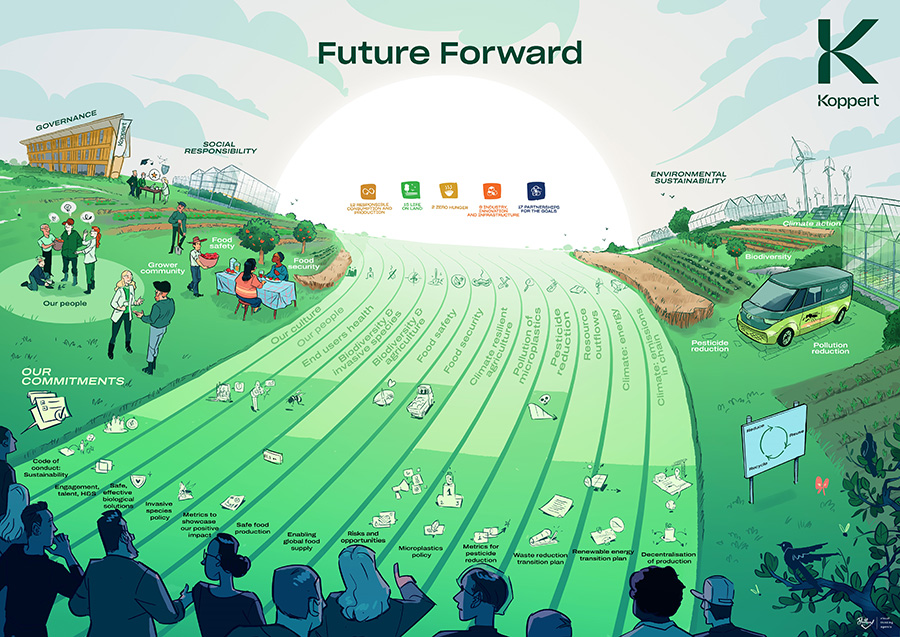- English

In a move towards a greener future, Koppert, a global leader in sustainable cultivation solutions, unveils its comprehensive sustainability strategy, ‘Future Forward – A path for a sustainable tomorrow.’ This initiative marks an important moment in the company’s 57-year legacy, propelling it towards greater environmental stewardship and social responsibility.
Under the guidance of Chief Strategy Officer, Peter Maes, Koppert embraces a company-wide transformation aimed at integrating sustainability into every facet of its operations. ‘Sustainability is an ethical and strategic imperative for our company which adds value, bolsters our bottom line and enhances long term viability, asserts Maes. ‘Through ‘Future Forward,’ we’re committing to reducing our negative impact while amplifying our positive contributions to the planet.’
The cornerstone of Koppert’s sustainability strategy is a global approach that engages employees at every level of the organisation, across all its subsidiaries. Koppert’s sustainability agenda builds upon its foundational mission and vision, rooted in environmental preservation and health. Over the years, the company has spearheaded reduction of pesticide usage, preservation of ecosystems, and introduced innovate sustainable packaging materials. Now, with ‘Future Forward,’ Koppert expands its focus to encompass energy efficiency, emission reduction, and social responsibility across all of its subsidiaries.
‘By aligning with the UN’s Sustainability Development Goals and the EU Green Deal, we’re championing international sustainability, ‘explains Maes. ‘Our strategy reflects the motivation of our board and employees, the expectations of stakeholders and our unwavering commitment to compliance.’
Key elements of Koppert’s sustainability strategy include:
Environmental sustainability: Increase our positive impact, reduce our negative impact
Social responsibility: Develop talent, act as a responsible employer and support communities worldwide
Governance: Transparent, responsible and accountable
‘As responsible stewards of the planet, we recognize the urgent need for action,” concludes Maes.‘ Koppert is poised to lead by example, demonstrating that sustainability can be a moral imperative as well as a strategic advantage.
For more information on Koppert’s sustainability ambitions, read more.